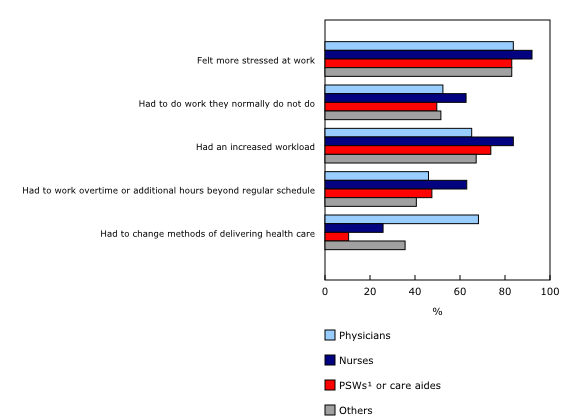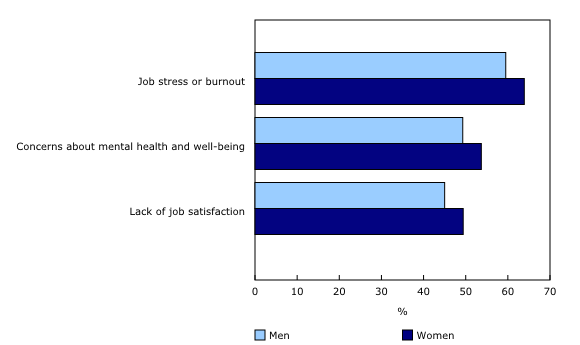
Canadian Health Care System in Crisis
The COVID-19 pandemic has had a significant impact on our health care system, in particular on health care workers on the front lines of caring for Canadians. Nurses have been working tirelessly over the last couple of years in response to the pandemic, doing their best to keep us out of hospitals, treat the ill, vaccinate people and educate communities all the while trying to keep themselves and their families safe. If you live in a household with a healhcare provider you would know first hand how challenging and stressful the last 2 years was on each and every healthcare provider and their immediate families. At some points during the pandemic, the front line staff had to stay at the hospital or hotels to keep their families safe and avoid any exposure to their kids and elderly parents. Getting back home was an ordeal by itself; taking off their scrubs right at the doorway, washing them in high temperatures, taking a hot shower before they could even step in their own living room and meet their kids. They constantly faced the possibility of falling ill and they had no choice but keep going.
As the pandemic advanced and cases began to rise, health care staff faced a a number of challenges, starting with extended work hours and no ability to take any time off to recharge their batteries. There was a lot of support from the public but that was not enough.
According to the Survey on Health Care Workers' Experiences During the Pandemic (SHCWEP) most health care workers (95.0%) reported that their job was impacted by the pandemic, and a large majority (86.5%) felt more stressed at work during the pandemic.
Feeling more stressed at work is the most common impact felt by health care workers during the pandemic.
The three major impacts most commonly reported by health care workers were
- feeling more stressed at work (86.5%)
- having an increased workload (for example, extra screening, cleaning, and managing personal protective equipment and other tasks related to the pandemic) (74.6%) and
- having to do work that they do not normally do (55.5%).
Among the occupation groups, about 9 in 10 nurses (92.0%) reported feeling more stressed at work—higher than physicians (83.7%), PSWs or care aides (83.0%) and other health care workers (83.0%).
Having an increased workload (83.7%) was the second most commonly reported impact among nurses. Because they often provide hands-on care and work in acute care settings, nurses may not have been able to modify their methods of delivering care and may have had increased demand for their services.
Impacts experienced by health care workers during the COVID-19 pandemic, by occupation, Canada, September to November 2021
Nurses are most likely to report intending to change jobs or leave their current job in the next three years, among health care workers not intending to retire
We see an unprecedented labour demand in the health care system, which was triggered by COVID-19. Recent results on job vacancies (release of the fourth quarter of 2021) show that there were 126,000 vacancies in the health care and social assistance sector, almost double the number of vacancies seen two years earlier (64,000).
According to the survey (SHCWEP) among health care workers not intending to retire, 17.9% indicated that they intend to leave their current job or change jobs within the next three years.
If we look at this result by occupation group, almost 1 in 4 nurses (24.4%) intended to leave their job or change jobs in the next three years. This result is higher than for other occupation groups.
Health care workers' intentions to leave their job or change jobs in the next three years, among those not intending to retire, by experience and occupation, Canada, September to November 2021
Job stress or burnout is the most common reason why health care workers not intending to retire are considering leaving their job or changing jobs
Of the responders not intending to retire, job stress or burnout was the most commonly reported reason (63.2%).
The second most common reason why health care workers were considering leaving their job or changing jobs was related to their concerns about their mental health and well-being (53.0%), followed by a lack of job satisfaction (48.8%).
Reasons why health care workers are considering leaving their job or changing jobs, among those not intending to retire
Looking Ahead
As the survey highlights the Canadian health care system is up against challenging times ahead. We have been already seeing the signs of this with long waitlists, backlogs, delayed surgeries and most importantly staffing shortages that will continue to rise according to the survey conducted. Most recently we are seeing that some hospitals are shutting down their ER due to being short staffed. Unless major remediations and proper planning is done, we will see more decline in our healthcare quality.



